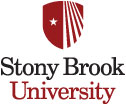Newswise — Stony Brook University has received a $1 million gift to improve understanding of environmental cycling and public health effects of mercury. The Gelfond fund for Mercury Related Research and Outreach, established by Richard Gelfond, CEO and Director of IMAX Corporation and Chairman of the Stony Brook Foundation, will advance scientific understanding of methylmercury accumulation in human diets and its effects on human health. Almost 25% of all NYC adults and nearly 50% of Asian New Yorkers are estimated to have blood mercury levels at or over the NY State reportable level, according to a 2007 study by the NYC Department of Health and Mental Hygiene. Humans are primarily exposed to mercury through consumption of seafood which contains methylmercury. While all fish have some contamination, the bigger, longer-lived fish such as shark, swordfish, and species of larger tuna have the highest levels. “It is my hope that this program will highlight the dangers of methylmercury toxicity in the environment and lead to a greater understanding of the sources of toxicity and how that can be reduced,” said Mr. Gelfond, who personally experienced mercury poisoning related to frequent consumption of mercury-rich fish. “I also hope that the research will help physicians in diagnosing and treating this debilitating condition. SBU’s Consortium for Interdisciplinary Environmental Research (CIDER) is the perfect place to administer the gift because of its expertise in the relationship between health and the environment.” “Mr. Gelfond’s generous donation will help to advance the science concerning mercury in the environment and its impact on marine life and on people who consume that marine life,” said Samuel L. Stanley, Jr., MD, president of Stony Brook University. “It is our hope that this research will better inform both the medical community and the general public about the symptoms and dangers of mercury poisoning and lead to the development of better treatments for poisoning.” “We want to assure that physicians are aware of the risks associated with consuming certain kinds of seafood and are delighted to have the participation of a group of medical experts focused on informing the medical community. In addition, this fund will support research into better understanding mercury cycling and accumulation in marine fish,” said Dr. Nicholas Fisher, Distinguished Professor in the School of Marine and Atmospheric Sciences (SoMAS) and Director of the Consortium for Interdisciplinary Environmental Research (CIDER.) A more detailed description of the “Areas of Focus” for the Gelfond Fund for Mercury Related Research and Outreach are listed below. Information about safe seafood consumption can be found at http://www.epa.gov/fishadvisories/advice/ Information about the NYCHANES study can be found at http://www.nyc.gov/html/doh/html/pr2007/pr059-07.shtml More information about CIDER at: http://www.stonybrook.edu/cider/
AREAS OF FOCUS THE GELFOND FUND FOR MERCURY RELATED RESEARCH & OUTREACH CENTER FOR INTERDISCIPLINARY ENVIRONMENTAL RESEARCH STONY BROOK UNIVERSITY I. Informing the medical community about the risks of mercury exposure associated with the consumption of seafood. A physician education working group is currently developing materials to inform physicians on how to recognize the signs and symptoms of overexposure, and to describe the treatment options available. An on-line continuing medical education course will also be developed through Stony Brook University Medical Center. II. Informing the public on how to enjoy the health benefits of seafood while avoiding the most heavily contaminated species of seafood. Many people are still unaware of the health effects of consuming seafood. The project aims to provide information to help the public become informed consumers. III. Developing a better understanding of which fish, including those in New York coastal waters, have the most elevated levels of mercury. While it is known that some large fish such as tuna and swordfish have high levels of mercury, there remain many unknowns on other fish that are commonly consumed. Research is underway to examine fish mercury levels from Long Island waters. IV. Promoting research on the mechanisms of toxicity of methylmercury to adult humans. While many toxicological studies have focused on the risks of mercury consumption by pregnant women to fetuses and newborns there has been comparatively little study on adult populations. The project aims to examine how prevalent elevated mercury levels are in adults in the New York area, to examine the health effects of these elevated mercury levels, and to investigate what can be done about it. \
